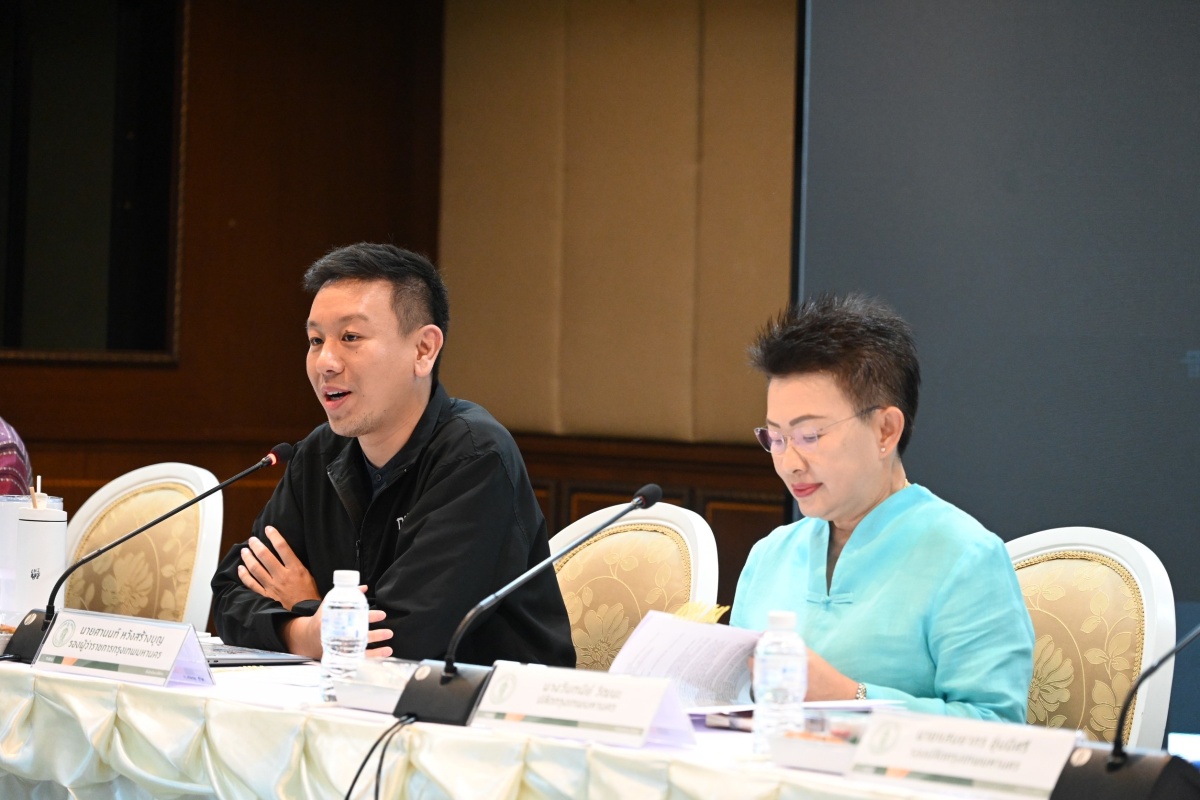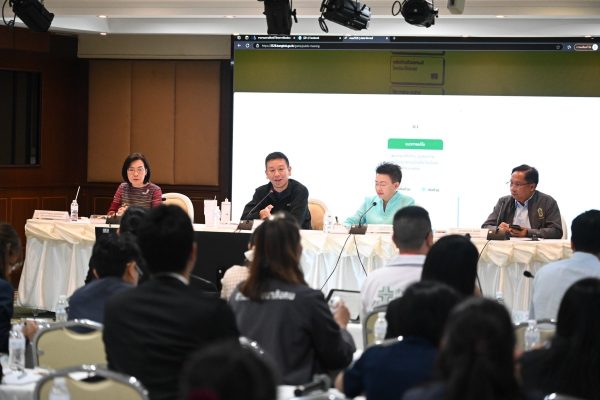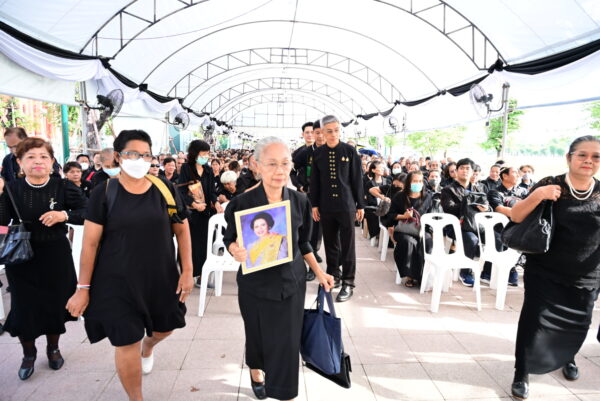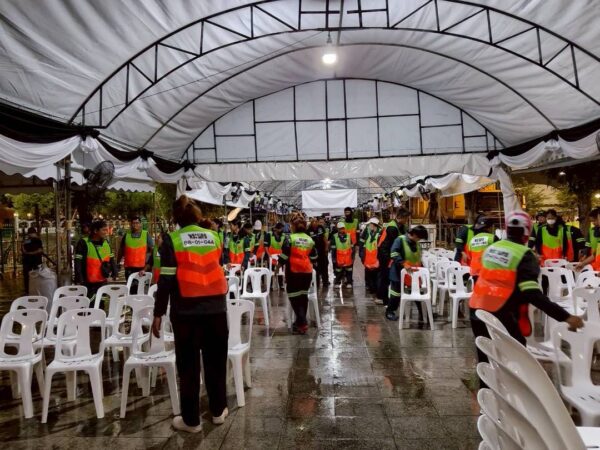(April 18, 2025) – The Bangkok Metropolitan Administration (BMA) is expediting efforts to
reintegrate school dropouts into the education system, with the aim of giving them the opportunity to
grow into upstanding members of society.

Sanon Wangsrangboon, Deputy Governor of Bangkok, made this remark while presiding over the first
2025 meeting between executives of the Social Development Department and heads of the
Community Development and Social Welfare Division from all 50 district offices across Bangkok.
The meeting, held at the Rattanakosin Room in Bangkok City Hall (Sao Chingcha), Phra Nakhon
district, was also attended by Wantanee Wattana and Saenyakorn Ounmeesri, Permanent Secretary
and Deputy Permanent Secretary for the BMA.
Sanon spoke about the amendment of the BMA Act B.E. 2528 (A.D. 1985), emphasising that the
law should be easy to understand by avoiding overly complex language. This would help align with
City Hall’s goal of encouraging public input.
He highlighted the crucial role played by the Community Development and Social Welfare Division at
district offices, the Education Division of the Education Department, and the Social Development
Department in the development of early childhood (ages 0–8), a stage marked by intense cognitive
growth.
“The true core of human life is the frontal lobe in early development, which acts as the ‘CEO’ of our
body, orchestrating everything. This part of the brain sets us apart from other animals and enables
higher cognitive functions,” Sanon explained.
He stressed the importance of children aged 3–6 having access to educational opportunities that
stimulate brain development. However, citing research by the Equitable Education Fund (EEF), he
noted that many children in this age range are dropping out of the education system.
“This indicates that they are either not receiving a quality education or are spending their time in front
of screens rather than attending school. This is a major issue,” he said.
He added that European countries excel in early childhood care because they believe that when
children are nurtured from a young age, they grow into well-rounded adults.
Sanon stated that with Thailand’s annual birth rate at around 50,000, there are an estimated 300,000
children aged 0–6. However, only around 70,000—roughly one-quarter—are enrolled in schools or
child development centres, indicating a severe dropout problem.
While confirming that the BMA is making progress in bringing dropout children back into the
education system, he emphasised that these efforts must be accelerated to enhance children’s quality
of life. He added that schools and child development centres must be improved.
Sanon outlined eight key policies to tackle the issue: Distribute three storybooks to newborns in eight
BMA hospitals; Allow children to begin kindergarten at age three and expand kindergarten classes in
BMA-run schools; Upgrade school facilities to meet quality standards; Upgrade child development
centres to meet quality standards; Provide learning resources beyond the classroom; Develop
play-based learning courses; Encourage family involvement through parent classrooms; Develop
teachers, increase welfare benefits, and reduce their workload.
Meanwhile, Wantanee stressed that chiefs of district offices’ Community Development and Social
Welfare Division, along with the Social Development Department, should understand that their
responsibilities extend beyond just communities, welfare careers, and housing—they serve all people.
She noted that the BMA Act B.E. 2528 (A.D.1985) has been in effect for over 40 years, during which
time Bangkok’s context and challenges have evolved significantly. She acknowledged that City Hall
often bears the brunt of public criticism.
Wantanee emphasised that BMA officials cannot use excuses when responding to public complaints,
as the Governor’s policy is focused on addressing the concerns of the people. She maintained that
amending the Act would be beneficial.
“Wouldn’t it be better if we had the opportunity to operate under an amended Act—especially when
the public is directly affected, both positively and negatively, by our actions?” she said.
“If the amendment makes processes simpler and more effective, everyone stands to benefit.
The world has changed. Living in our own bubble is no longer enough. What can we do differently? What
changes can we adopt and push forward?”
She stressed that BMA executives are prioritising the Community Development and Social Welfare
Division, and that collaboration across departments is essential.
“The next step must involve participation. We cannot continue doing things the old way. We must
encourage people to become aware, to understand, and to actively participate in achieving sustainable
outcomes,” she said.
She urged division chiefs to adopt a new mindset. “Clinging to old ways of thinking will trap us in
outdated approaches,” she warned.
Wantanee also addressed the issue of the elderly, calling it a major concern among vulnerable groups.
“We are now a super-aged society. We want the elderly to spend less time isolated at home and more
time engaged with society. We aim to enhance their quality of life through multi-generational
happiness centres, senior citizen clubs, and various activities,” she said.
She also mentioned that the public has called for the BMA to establish schools for the elderly, which
would help young people learn to live alongside older adults.
BMA #Bangkok #dropout #children #elderly #school #education #qualityoflife
9GuidingPolicies9Good #GoodEducation




